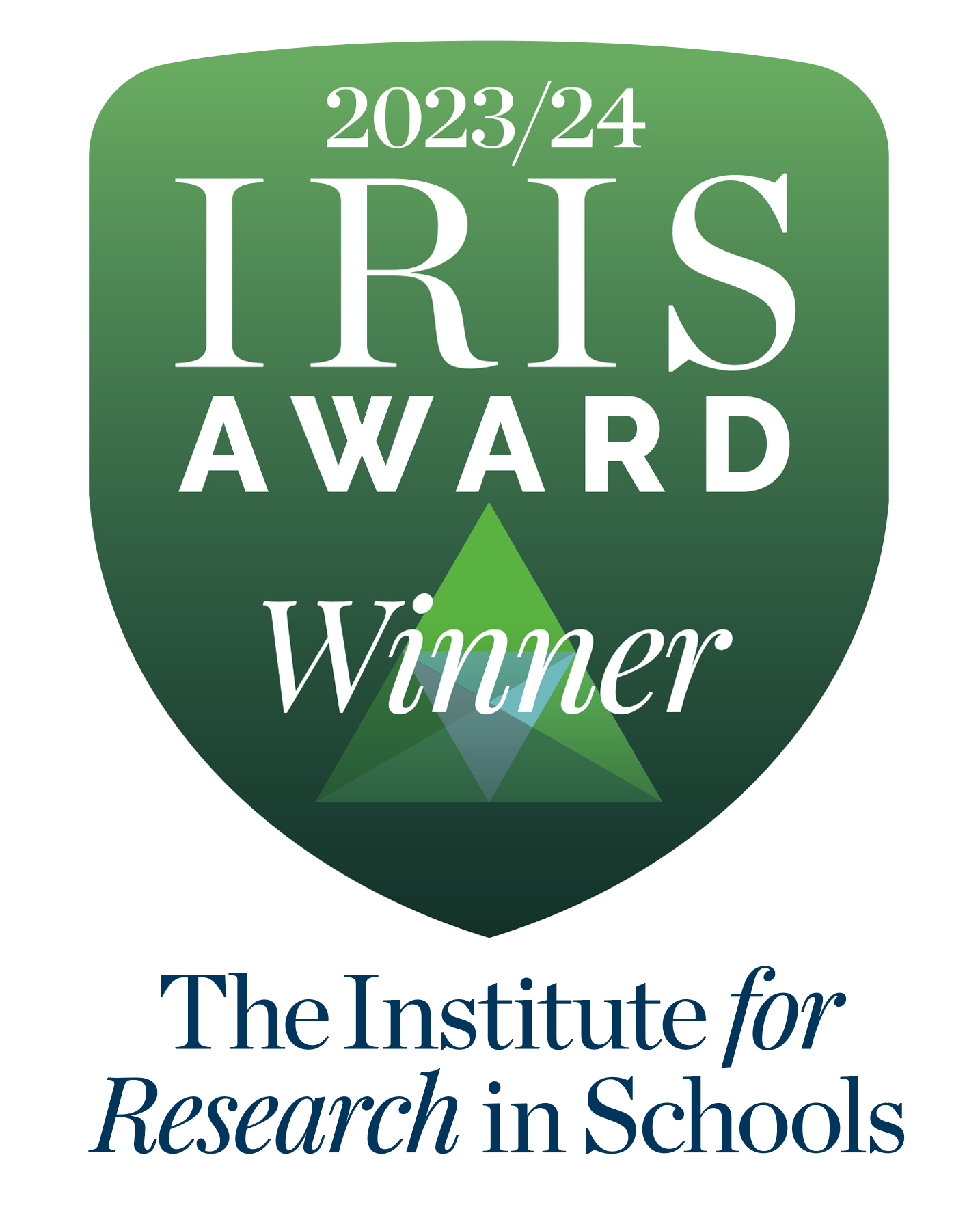Assessment and Reporting
Students at Hele’s School are assessed in a variety of different ways. Ongoing, formative, assessment takes place during every lesson to ensure that students are learning effectively and making progress. This may be through questioning with verbal feedback or marking with written feedback. The emphasis is always on helping students to get better and improve their work. We use this ongoing assessment of students, in conjunction with more formal summative testing, to help inform our professional judgements of where we think students are now and what we think they will achieve at the end of the course.
In addition to subject parents’ evenings and meet the tutor parents’ evenings, we report to parents three times a year through reports. The reports are published on the following dates:
- IA1 issued November/December
- IA2 issued March
- IA3 issued Thursday June/July
Reports to Parents/Carers
During this academic year, parents and carers will receive three reports on their child’s progress. The timing of reports to parents has been aligned with important events for the year group, for example internal exams and options processes for Year 11:
In response to each report, students work with their teachers to set subject-specific targets so that they are clear about their next steps in learning.
Year group: |
Report 1: Friday 7th January |
Report 2: Wednesday 23rd March |
Report 3: Thursday 30th June |
|
7 |
Yes |
|
Yes |
|
8 |
Yes |
Yes |
|
|
9 |
|
Yes |
Yes |
|
10 |
|
Yes |
Yes |
|
11 |
Yes |
Yes |
|
|
12 |
Yes |
Yes |
Yes |
|
13 |
Yes |
Yes |
Commitment to Learning
Alongside attendance and regular reading, a significant indicator of educational success is a student’s commitment to learning. So, on all reports parents/carers are informed of their child’s quality of work, independent learning and behaviour for learning. The commitment to learning criteria statements are below:
Aspect |
Excellent |
Good |
Inconsistent |
Cause for concern |
|
Quality of Work
|
I always produce my best work. I seek feedback on my learning and act upon it. I show commitment to improvement by using DIRT effectively and continually making green pen improvements in class. I practice my improvements by redrafting work and completing additional tasks in my own time.
|
I always produce my best work. When given feedback, I act upon it and am keen to improve my work. I use DIRT time well and my books/folders have lots of evidence of green pen improvements.
|
I produce my best work when I am interested in a topic or subject but do not do this consistently. I can produce a higher standard of work with more effort. I do not always act upon the feedback given and so there are limited green pen improvements in my book/folder. I need to improve my use of DIRT.
|
I give up easily and do not always complete tasks set. I am capable of producing a much higher standard of work with more effort. I do not act upon the feedback given and there are no green pen improvements in my book/folder.
|
|
Independent Learning
|
I always complete homework to the best standard I can. I show commitment to improving my learning by regularly reviewing my work outside the classroom. I am self-motivated and can act independently on feedback to improve.
|
I try to complete homework to a good standard and aim to exceed the minimum expectations. I am committed to improving but would benefit from adopting strategies to ensure that I maximise my learning outside the classroom.
|
My homework often meets the minimum expectations, but sometimes deadlines are missed. I can achieve a better standard with more effort. I need to focus on improving my learning outside the classroom.
|
My homework is usually not completed satisfactorily, and I often miss deadlines. I do not take responsibility for my homework or my learning outside the classroom.
|
|
Behaviour
|
I always take a positive, committed attitude towards my learning and am respectful towards my teachers and other students. I follow instructions but also show initiative in leading my own learning. I know how to study effectively and take pride in my achievements. I have strategies to cope when things may not go to plan.
|
I generally take a positive, committed attitude towards my learning and am respectful towards my teachers and other students. I follow instructions but need to begin to show initiative in leading my own learning. I am developing my knowledge of how to study effectively and take pride in my achievements. I have some strategies to cope when things may not go to plan.
|
I display an inconsistent attitude towards my learning and my conduct can show a lack of respect towards my teachers and/or other students. I follow instructions but sometimes need reminders. I may often be warned in lessons. I have an understanding of how to study effectively but need to practise this further. I can take pride in my achievements but can find it difficult if things do not go to plan.
|
I display a poor attitude towards my learning and my conduct often shows a lack of respect towards my teachers and other students. I do not follow instructions routinely and need frequent reminders. I do not take pride in my achievements in class and lack strategies to help me cope when things do not go to plan. I am often moved or parked within lessons.
|
How Parent/Carers can help at home
- Attendance – Encourage your child to maintain positive attendance( above 95%). Watch out for patterns of missing the same day/ lesson. Try and arrange medical appointments for out of school hours where possible and only take your child out for the appointment not the whole day. Contact the relevant pastoral team if you can see repeated patterns of absence. Do not take holidays during term time where avoidable.
- Reading, writing and spelling - Reading frequently and consistently will have the most profound impact on your child’s literacy development. Everything a child reads will contribute to their vocabulary and language proficiency. Therefore, the best thing you can do to support this is to provide a language rich home – a home filled with books and conversation.
- Quality of work -Encourage your child to work to the best of their ability. If they are finding something difficult, remind them to review their knowledge organisers, complete all green pen improvements or ask a teacher for help.
- Independent Learning–Home learning tasks will be shared with parents on ClassCharts and your child may need some help to manage their time. Encourage them to email their teacher if they need further help and remind them to do their best. It can really help if they have a quiet place to do their home learning and a regular routine, but if this is difficult then please arrange for them to attend homework club.
- Behaviour – talk to your child positively about school to help them develop a positive attitude to all subjects. Remind them of the importance of taking responsibility for their behaviour and being committed, respectful and safe.
Year 7-9
Our approach to assessment is largely formative as this has the greatest impact on learning. Formative assessment means that teachers check throughout the lesson whether students’ know and understand their learning before moving on. Teachers will focus their attention on checking understanding, reteaching where necessary, ensuring students act upon feedback, optimising retrieval & knowledge organisers, and explicitly teaching tier 2/3 vocabulary.
The focus for reporting to parents will be on commitment to learning and standardised national testing through GL Assessments. The aim of this is to ensure parents understand their child’s progress in relation to the national picture, the importance of good or better commitment to learning as a clear indicator of GCSE success and how they can support at home with attendance, homework and reading.
Year 10
Our approach to assessment is largely formative as this has the greatest impact on learning. Formative assessment means that teachers check throughout the lesson whether students’ know and understand their learning before moving on. Teachers will focus their attention on checking understanding, reteaching where necessary, ensuring students act upon feedback, optimising retrieval & knowledge organisers, and explicitly teaching tier 2/3 vocabulary.
The focus for reporting to parents will be on commitment to learning and standardised national testing through GL Assessments. The aim of this is to ensure parents understand their child’s progress in relation to the national picture, the importance of good or better commitment to learning as a clear indicator of GCSE success and how they can support at home with attendance, homework and reading.
|
Reformed GCSE 9-1
|
Approx equivalent old GCSE Grades
|
GCSE equivalent qualifications
|
Level 2 Certificates in ICT (CIDA) and Latin
|
|
9
|
|
|
|
|
8
|
A*
|
Level 2 Distinction*
|
A*
|
|
7
|
A
|
Level 2 Distinction
|
A
|
|
6
|
B
|
|
|
|
5
|
B/C
|
Level 2 Merit
|
B
|
|
4
|
C
|
Level 2 pass
|
C
|
|
3
|
D
|
Level 1 Distinction
|
|
|
2
|
E/F
|
Level 1 Merit
|
|
|
1
|
G
|
Level 1 Pass
|
|
Year 11
Our approach to assessment is largely formative as this has the greatest impact on learning. Formative assessment means that teachers check throughout the lesson whether students’ know and understand their learning before moving on. Teachers will focus their attention on checking understanding, reteaching where necessary, ensuring students act upon feedback, optimising retrieval & knowledge organisers, and explicitly teaching tier 2/3 vocabulary.
The focus for reporting to parents will be on commitment to learning and standardised national testing through GL Assessments. The aim of this is to ensure parents understand their child’s progress in relation to the national picture, the importance of good or better commitment to learning as a clear indicator of GCSE success and how they can support at home with attendance, homework and reading.
|
Reformed GCSE 9-1
|
Approx equivalent old GCSE Grades
|
GCSE equivalent qualifications
|
Level 2 Certificates in ICT (CIDA) and Latin
|
|
9
|
|
|
|
|
8
|
A*
|
Level 2 Distinction*
|
A*
|
|
7
|
A
|
Level 2 Distinction
|
A
|
|
6
|
B
|
|
|
|
5
|
B/C
|
Level 2 Merit
|
B
|
|
4
|
C
|
Level 2 pass
|
C
|
|
3
|
D
|
Level 1 Distinction
|
|
|
2
|
E/F
|
Level 1 Merit
|
|
|
1
|
G
|
Level 1 Pass
|
|
Key Stage 5
Whatever combination of subjects is studied at Post-16, we set all students an aspirational target grade. This is based on the student’s performance in their GCSEs. Target grades are designed to show students what could be achieved if they make excellent progress and work extremely hard during their time at Hele’s. Teachers then report a Current Working Grade. This is an objective decision based on the standardised and moderated evidence in the student’s basket of evidence. We use a fine grading system as follows:
B+ — very secure grade 4, but with intervention could boost to a grade A.
B — secure grade B. This grade is likely to be achieved without intervention, based on current performance.
B- — insecure grade B, a grade B is still most likely but needs work to secure
Parents' Evenings
Meetings with your child’s subject teacher or tutor are an essential aspect of the reporting process and help to maintain excellent home-school relationships. We run two types of parent meetings. Subject Parents’ Evenings are an opportunity to meet with your child’s subject teachers to discuss specific progress and achievements in individual subjects. Tutor Parents’ Evenings are an opportunity to meet with your child’s tutor to discuss their progress and wellbeing in general.
The parents’ evenings scheduled for the 2022-23 academic year are as follows:
Date |
Event |
| 29th September 2022 |
Year 11 Subject Parents’ Evening |
| 3rd November 2022 |
Year 12/13 Subject Parents’ Evening |
| 17th November 2022 |
Tutor Parents’ Evening |
| 5th January 2023 |
Year 10 Subject Parents’ Evening |
| 23rd March 2023 |
Year 9 Subject Parents’ evening |
| 18th May 2023 |
Year 7 Subject Parents’ evening |
| 22nd June 2023 |
Year 8 Subject Parents’ evening |
Of course, if you have concerns or queries, please do not wait until a parents’ evening to get in touch. You are always welcome to contact your child’s head of year/tutor/teacher at any point to arrange a meeting.






